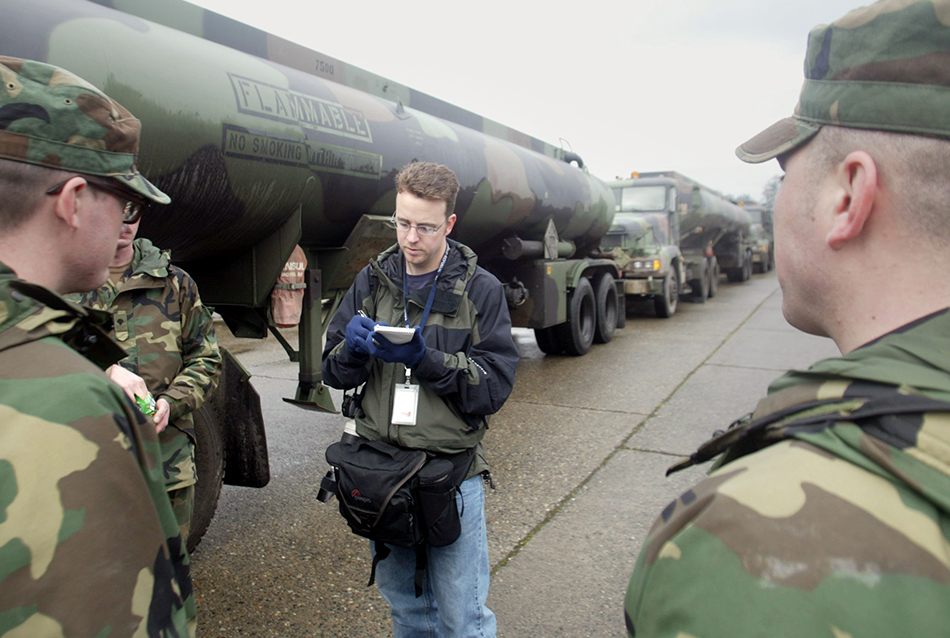[rev_slider iraqslider]
Note: the above images are mostly outtakes from my time embedded with troops from the 737th Transportation Company from January-March 2004. All images © Yakima Herald-Republic.
CORRECTION: I mentioned “bulletproof” vests in my article. The troops at the time had fragmentary resistant vests, later upgraded to the type of vest I wore–a ballistic vest with ceramic plates in the front and back. Also, a soldier with the 737th pointed out that he had never heard a mortar ‘whistle’. While the sound is clear in my memory, I’d have to describe it more accurately as a loud hissing noise, increasing in intensity to a roar. In any case, terrifying.
Like many of my journalist friends I’ve followed with fascination the controversy over NBC anchor Brian Williams’ misrepresentation of his role during an incident in Iraq in 2003. As someone who spent 16 years as a photojournalist and photo editor, I’m particularly sensitive to the topic. Just a few months after Williams’ incident, I was also an embedded journalist, living with and reporting on troops in Kuwait and Iraq.

